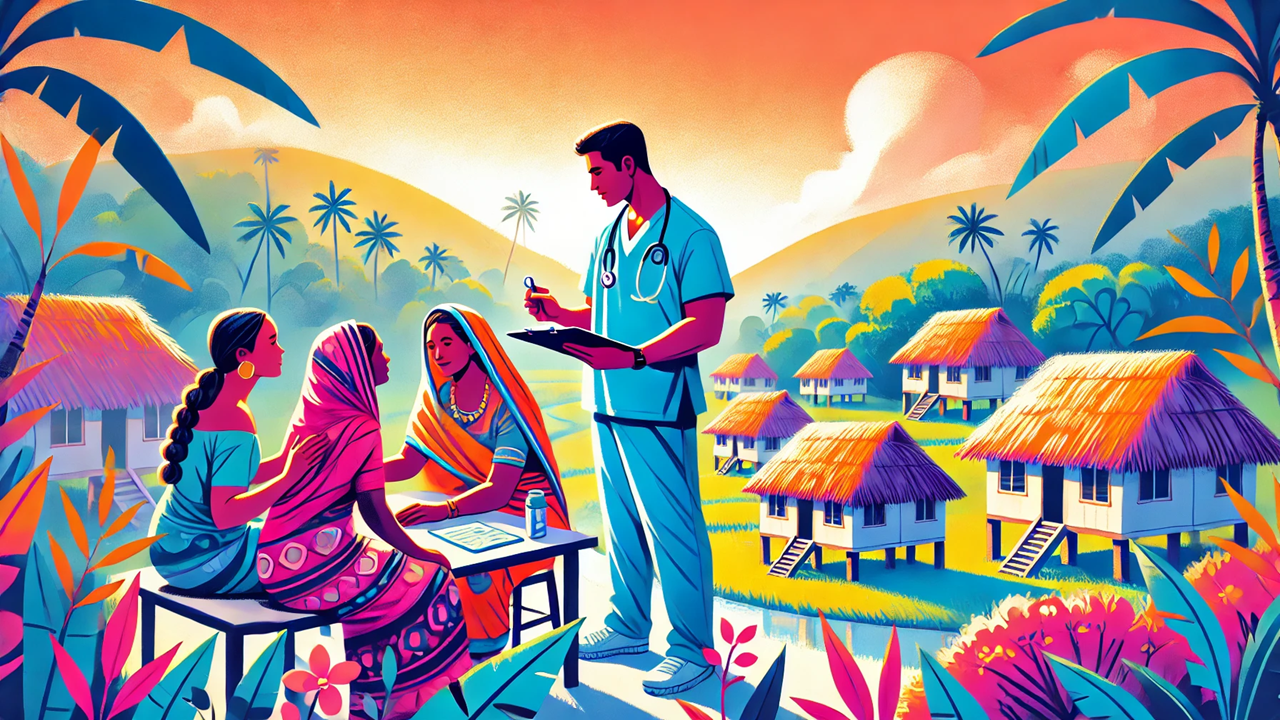Bridging the Gap: Gender Lessons from COVID-19 for Future Pandemics
The report "Preparing for Disease X: Lessons Learned from the Gendered Impacts of the COVID-19 Pandemic in the Pacific" highlights how COVID-19 exacerbated gender inequalities in the Pacific region. It underscores the need for gender-sensitive policies, equitable healthcare, and inclusive governance to better prepare for future pandemics.

The report "Preparing for Disease X: Lessons Learned from the Gendered Impacts of the COVID-19 Pandemic in the Pacific", published by the Asian Development Bank (ADB), provides a sobering insight into how the pandemic amplified pre-existing gender inequalities and highlights actionable recommendations to mitigate these disparities during future health crises.
A Pandemic of Inequality: Gendered Impacts in the Pacific
COVID-19 did not affect everyone equally, and the Pacific region’s experience sheds light on the stark gender disparities that intensified during the crisis. Women and marginalized groups bore the brunt of the pandemic’s social and economic impacts. From juggling increased caregiving responsibilities to losing jobs at alarming rates, women’s lives became more precarious.
Rural women were hit hardest, with limited access to healthcare and essential services. The pandemic’s strain on health systems also left many without critical maternal and reproductive health services, exposing a dire need for gender-sensitive health policies.
Economic Fallout: A Gendered Perspective
Women’s economic vulnerability was laid bare during the pandemic. In the Pacific’s informal economy, which employs a large number of women, lockdowns and mobility restrictions led to widespread income loss. Unfortunately, recovery policies often failed to account for these gendered realities, leaving many women without a safety net or access to resilience-building initiatives.
Without targeted interventions, economic disparities will persist, hindering not only gender equality but broader social and economic recovery.
Healthcare Gaps and the Way Forward
The pandemic exposed glaring gaps in healthcare access, particularly for women. Cultural and logistical barriers further limited access to critical services like maternal care. The report underscores the need for gender-sensitive healthcare frameworks that prioritize equitable resource allocation, especially in underserved regions.
Governance and Policy Blind Spots
Emergency response measures often sidelined the specific needs of women and marginalized communities, reflecting a lack of gender mainstreaming in policy frameworks. Moreover, the underrepresentation of women in leadership roles during crisis management weakened decision-making processes and outcomes.
For future pandemics, fostering inclusive governance and amplifying women’s voices in decision-making processes are non-negotiable steps.
Preparing for Disease X: Key Lessons
As the world braces for the unknown “Disease X,” this report calls for integrating gender analysis into pandemic preparedness and response plans. Community-based approaches that incorporate local knowledge systems can strengthen resilience and ensure equitable outcomes. Investing in education, healthcare, and gender-sensitive policies will be pivotal to addressing future health crises effectively.
Actionable Recommendations
To mitigate the gendered impacts of pandemics, the report outlines several key strategies:
Gender-Inclusive Frameworks: Develop disaster preparedness and recovery plans that prioritize gender equity.
Data-Driven Insights: Enhance data collection to capture gendered vulnerabilities and inform effective responses.
Collaborative Efforts: Strengthen partnerships between governments, NGOs, and communities to build resilient, inclusive recovery pathways.
The report "Preparing for Disease X", published by the Asian Development Bank (ADB), serves as both a wake-up call and a roadmap for a more equitable approach to pandemic preparedness. By addressing the gendered impacts of COVID-19, policymakers and stakeholders can ensure that future responses are inclusive, effective, and equitable—leaving no one behind.
- FIRST PUBLISHED IN:
- Devdiscourse










